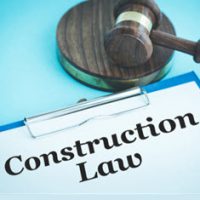Navigating Florida’s Roofing Laws

What is Roofing Law?
Roofing law has become a specialized area of construction law given the uniqueness of the legal issues arising in the area. Many states, including Florida, have laws governing contractors involved in roofing work. These laws are found in the state’s building codes and they are enacted to ensure that all buildings meet a specific standard to withstand hurricane force winds. In fact, a large portion of what legal professionals refer to as “roofing law” are standards that were created in response to powerful hurricanes affecting roofing conditions in the state. Other types of roofing laws govern the contractors who install roofing. These regulations are in place to protect consumers from unlicensed contractors and ultimately, bad workmanship.
Strict Licensing Requirements in Florida
Becoming a certified roofing contractor in Florida is a lengthy and stringent process. The Florida Department of Business and Professional Regulation administers the certification process. The contractor must first take and pass a state certification examination. Applicants for the license are required to possess four years of roofing experience or a combination of education and experience in the field. All applicants who apply for the license must show proof of credit worthiness. They must establish financial stability and responsibility through the submission of credit reports showing FICO credit scores and other financial factors. All applicants are subject to fingerprinting and background checks as part of the licensing process. Due to the dangerous nature of roofing, applicants are required to attest that they have acquired liability and property damage insurance. Applicants are also required to obtain workers’ compensation or an exemption where applicable. There is a fee associated with the application filing that the applicant must fulfill. Individuals and other businesses that hire unlicensed roofing contractors are subject to harsh monetary and criminal penalties.
Effect of Hurricanes on Florida’s Roofing Law
Florida has some of the strictest roofing contractor licensure rules and building standards in the country. This came about during the disastrous aftermath of Hurricanes Charley, Frances and Ivan in 2004. Prior to that, Florida had already reformed its building codes after Hurricane Andrew ravaged South Florida in 1992 with many homes left in ruins. Florida Statute 553.844 and related laws brought heightened inspection standards, stringent licensure requirements, and more comprehensive building codes. Before the effects of the recent hurricanes, roofs were not regularly inspected and the standards were rather outdated. In areas such as South Florida, where hurricanes carry strong winds, the codes are even stricter. During the aftermath of Hurricane Irma, Florida relaxed roofing laws to accommodate the need for contractors to revive home and businesses that were devastated during the storm. The suspension of certain regulations was a result of the emergency response and was limited in time. At the same time, the suspension of those laws also came with heightened inspection practices. This goes to show that one must be legally versed when performing roofing projects in Florida.
Fort Lauderdale Construction Attorney
Florida has some of the strictest roofing laws in the country. It is wise to consult with an experienced construction law attorney who can adequately respond to legal issues arising from your roofing business or your agreement with a roofing contractor. Protect your construction project and your money. Attorney Brendan A. Sweeney has years of experience advising on building standards and roofing regulations. Contact us now for a consultation.
Resource:
myfloridalicense.com/CheckListDetail.asp?SID=&xactCode=1030&clientCode=0603&XACT_DEFN_ID=3022

